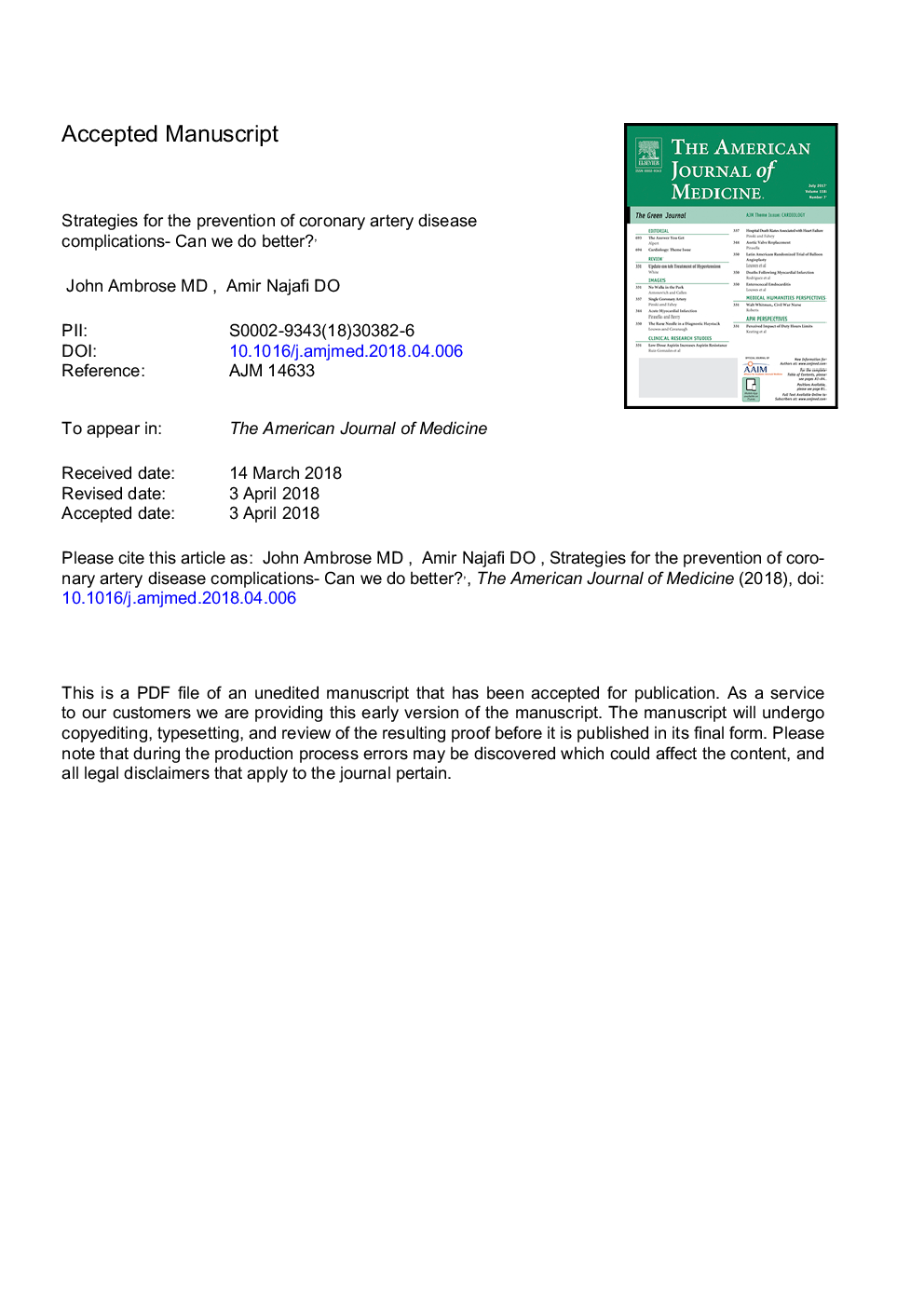| Article ID | Journal | Published Year | Pages | File Type |
|---|---|---|---|---|
| 11022867 | The American Journal of Medicine | 2018 | 19 Pages |
Abstract
Billions of dollars have been spent over the past 25 years on developing new therapies for the prevention/treatment of adverse cardiac events related to atherosclerotic cardiovascular disease. Although some therapies have been lifesaving, several mega-randomized studies have shown only a <2% absolute reduction in adverse events with a large residual event rate. Is all this money well spent? Atherosclerosis develops decades before an adverse event, and the trials previously alluded to have nearly always been applied to secondary prevention, decades after disease initiation. Will earlier intervention result in a lower incidence of events? Individuals with an absence of the usual cardiac risk factors have a lifelong low incidence of events. Early initiation of strategies against the common cardiovascular risk factors in primary or primordial prevention will lower the incidence of adverse events, although many groups have not been well studied, including individuals younger than 40 years of age. New strategies are required to realize a radical reduction in events, and this article proposes new methods of prevention/treatment for coronary artery disease complications.
Keywords
Related Topics
Health Sciences
Medicine and Dentistry
Medicine and Dentistry (General)
Authors
John A MD, Amir DO,
